A few weeks ago, I boarded a massive ship — a cruise ship, to be precise — and went to Alaska with my family. After porting out of Seattle, we chugged along the Canadian coast for a few days before reaching the promised land of vibrant forests and mountain streams.
Words cannot do justice to the pristine and spectacular beauty that I found in the oft-forgotten northernmost territory of the US. I may devote an entire future essay to a detailed recounting of the majestic humpback whales, the adorable sea lions, the marvelous snow-capped summits, the patient glacial giants, and the lush woodlands of the Alaskan ecosystem.
This particular essay, though, is dedicated to a man named Scott. I will recount his story to the best of my recollection.
An Excursion in Skagway
My family’s first stop in Alaska was the quaint town of Skagway, one of just three communities in Southeast Alaska accessible by road. There, we booked an excursion that involved boarding a small vessel to travel from Skagway to Haines, Alaska. Once there, we rode a bus to a launch point, boarded large rafts, and floated down the wonderful Chilkat River through the Chilkat Bald Eagle Preserve.
The excursion was delightful, relaxing, and overflowing with aesthetic beauty. Yet, it was enhanced all the more by a quirky Alaskan chap with an overgrown beard that would have done Grizzly Adams proud.
As you may have guessed, this man was Scott. We first met Scott upon boarding the bus to take us to the launch point on the river. He livened up our bus ride with a combination of factual knowledge, witty anecdotes, and an overall charming persona.
When we arrived at the river, our large group divided and boarded several rafts, and we were lucky enough to jump on Scott’s boat. On our float, we had the chance to speak with Scott more intimately about his background and present life.
Scott’s Story
Scott grew up in Colorado and was enamored from a young age with the ecstasies and mysteries of the natural world. This interest led him to pursue education in the area of environmental science, with the ultimate hope of earning a doctorate and becoming a professor.
Having met Scott, I can say that he would indeed make an excellent professor. Articulate, erudite, enthusiastic, and humorous, Scott would light up a classroom, and any student would be fortunate to spend a semester in his care.
But, by fate or chance, Scott did not pursue his PhD nor become a professor. Though his dream seemed well-suited and within reach, another craving was welling in Scott’s being, and this longing would not be confined within the walls of an academic institution.
You see, Scott’s love for the outdoor world was not merely a love for learning about the Earth or gazing upon its forms. Scott loved to conquer its looming canopies, challenge its far-off depths, adventure through its heart and heights.
As Scott progressed through school, he still made time for life beyond civilization. He camped, fished, and skied avidly. From his accounts, though, I believe that perhaps his greatest joy was in mountaineering.
After receiving his Master’s, Scott managed to finance a two-year stint in South America, where he lived primarily in the mountains. All the while, his aspiration to professorship remained in the back of his mind.
He continued to travel and climb, working as a guide and ski instructor in Colorado. Eventually, he spent some time in Alaska, and quite unexpectedly, fell in love all over again.
Certainly the impressive landscapes of Alaska kindled a lust in Scott’s soul, but it was something much simpler which absorbed him and provided a moment of clarity — water.
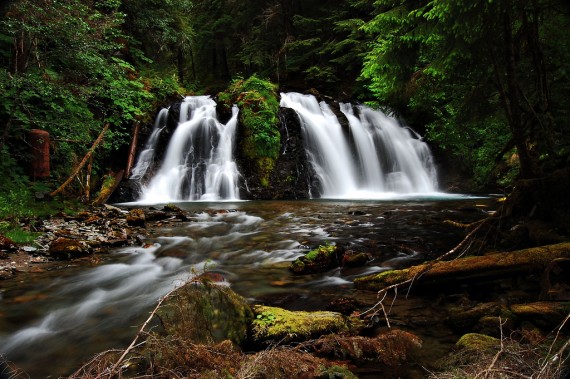
The clear, silt-less river and stream water that flows in Alaska is pure enough to drink. For many people, this might seem a trivial or mildly interesting factoid. For Scott, it was something else entirely. That he could drink the very water washing over the land connected Scott with a basic but obscured truth about his irrevocable relationship to the Earth. His appreciation for the provider, the planet, was deepened, and he felt he was where he ought to be. Scott was home.
Scott decided shortly after that he must live in this place that had gripped his spirit’s imagination. One is reminded of the renowned American naturalist John Muir, who treasured the Alaskan world. Muir once wrote, “The mountains are calling, and I must go.”
Scott devoured book after book about Alaska, seeking to learn all that he could about its history and thriving biology. Scott was becoming an expert, gaining knowledge that would allow him to create a sustainable life for himself.
For a couple of years, Scott was only able to afford to live in Alaska for the summer. He made a living as a guide during those mild summer months and worked in Colorado throughout the rest of the year. At some unknown point during that time, Scott also met the woman who would become his wife.
Eventually, Scott carved out a niche for himself as a carpenter in the off-season and was then able to live with his wife in Alaska full-time. Scott subsisted in an environmentally friendly way, building his own house, gardening, fishing for salmon, and living modestly. He and his wife were not rich in the sense of possessing the material extravagance that our modern culture associates with wealth, but they were unconcerned with such things.
They had followed the path of a decidedly contrary treasure, one that dwells in the heart rather than the pocketbook — love and appreciation for each other and for the planet that bore them.
As time passed, Scott still clung to the remnants of his old academic dream. A part of him yet desired to educate in a formal setting, to share his thoughts and passion for the betterment of others.
One day, though, after guiding a group of travelers, Scott was struck by the words of a woman in his group. “Wow,” she said, “That was really something. I can see now why we need to preserve these places.”
It was then that Scott understood that sharing his knowledge and excitement was not something that would necessarily be most impactful in a classroom setting. Scott saw that he was teaching others, in the very temple that sustained his life. He realized that through his work, he could show others his sanctuary and do his part to save it from society’s destructive greed.
Scott found contentment in that purpose, and he has lived in Alaska for the last 15 years with his wife and their now 2-year-old daughter. Though he didn’t end up in the dream he’d once envisioned, he wound up living one that was perhaps more completely his. His heart, it seems, did not forsake him.
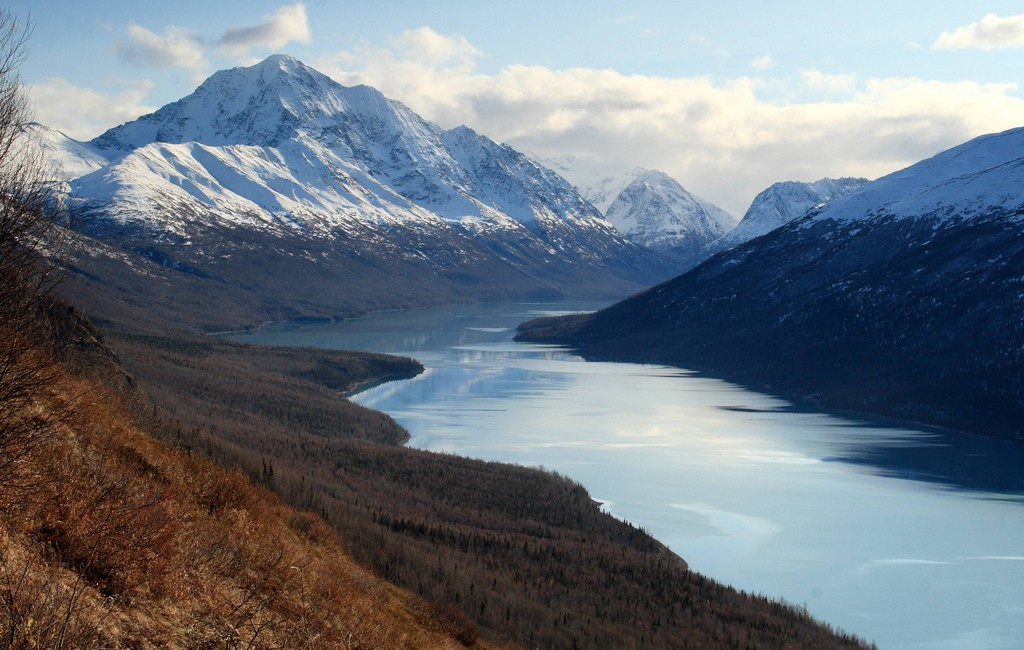
Takeaways
Scott’s story inspired me deeply. It’s one thing to hear many people say, “Pursue your dreams!” and “Follow your bliss!”, but it’s another thing entirely to meet someone who has actually done so. Meeting Scott helped to reinforce and supplement some of my ideas about how to live a satisfying life.
1. Don’t be afraid to revise “the dream”.
From a young age, many of us develop precise ideas about what we’d like to be “when we grow up”. These ideas give us a sense of direction and security, but they don’t often account for changes in our lives or things that we have yet to discover about ourselves. We need to recognize that our dreams as 13-year-olds or even 23-year-olds may be based on a false understanding of who we are and what will make us happy.
Instead of needing to map out our entire lives, we should focus on paying close attention to what we feel day-to-day in our depths. We should ask ourselves if we’re enjoying the details and remain open to the idea of uncovering a newer and more exciting passion or vision for our lives. Personally, I have many notions of what I may do at different points in my life. I don’t try to pin down one specific thing. I find this approach to be liberating and more realistic, rather than a source of anxiety.
2. Do your thing, even if it’s uncommon or unpopular.
In a similar vein, we become far too invested in certain images of what “success” looks like. Many of us hone in on mega-specific careers, and even if we don’t, we internalize all sorts of rules about what we should pursue. For example, most of us want a lot of money, a well-regarded profession, and a lifestyle that our parents and peers will approve of.
These things are fine, but they can be severely limiting. Scott seems to me to be someone who was always willing to do his thing, but perhaps even his dream of professorship was somewhat based on what would be prestigious or would make other people happy. His uncomplicated life in Alaska may strike some people as less desirable or impressive, but he didn’t chase it to please others. He did it because it filled him up in a way that nothing else could.
3. Seek fulfillment in the basic, essential things.
As I mentioned in the story, Scott isn’t living a life of excess. He does without many of the luxuries that would be considered necessary in affluent societies. Yet, he struck me as one of the most self-actualized and satisfied adults I’ve met. I think this is because Scott has a true appreciation for the joys of the natural world, for his life, and for the love of his family and friends. Nature and love are all he needs.
You won’t see such things advertised on TV, because obviously, they cost nothing. We live in a culture that constantly tells us we’re missing something, that we’ll be complete if we just buy one more thing. This is manipulation and trickery and deceit. If you cannot find peace in just those things that are free and/or necessary, you will never find it in any amount of decadence or accumulated goods.
4. Travel will show you who you are.
If Scott hadn’t allowed his passion for mountaineering to take him thousands of miles from home, he of course would not be where he is today. He would never have tasted the ice-cold stream water that aroused his conviction to live in Alaska.
We grow up in limited places within a very limited set of norms and perspectives. Travel enables us to see outside that vacuum and to see ourselves anew. Thus, travel to distant places and pay close attention. Venturing into the unknown re-orients our inner compass toward what we deeply love.
“If you do follow your bliss you put yourself on a kind of track that has been there all the while, waiting for you, and the life that you ought to be living is the one you are living. Follow your bliss and don’t be afraid, and doors will open where you didn’t know they were going to be.”
― Joseph Campbell
P.S. If you liked this post, consider grabbing free updates. And as always, thanks for listening.
Note: One thing I forgot to say in this post is that during our conversation, Scott mentioned three books that he said were extremely influential to him. The first was Zen and the Art of Motorcycle Maintenance: An Inquiry into Values by Robert M. Pirsig, one of my favorite books of all time. The second was The Monkey Wrench Gang
by Edward Abbey, which I just started reading today. So far, it’s positively invigorating and entertaining; the characters are beautifully sketched. The final book he suggested was Let the Rivers Flow
by Timothy and Pamela Williams. I have yet to start reading this book. I thought these books might interest some of you. Cheers.
Photo Credits: Paxson Woelber,Vincent Lock, & Frank Kovalcheck
About Jordan Bates
Jordan Bates is a Lover of God, healer, mentor of leaders, writer, and music maker. The best way to keep up with his work is to join nearly 7,000 people who read his Substack newsletter.

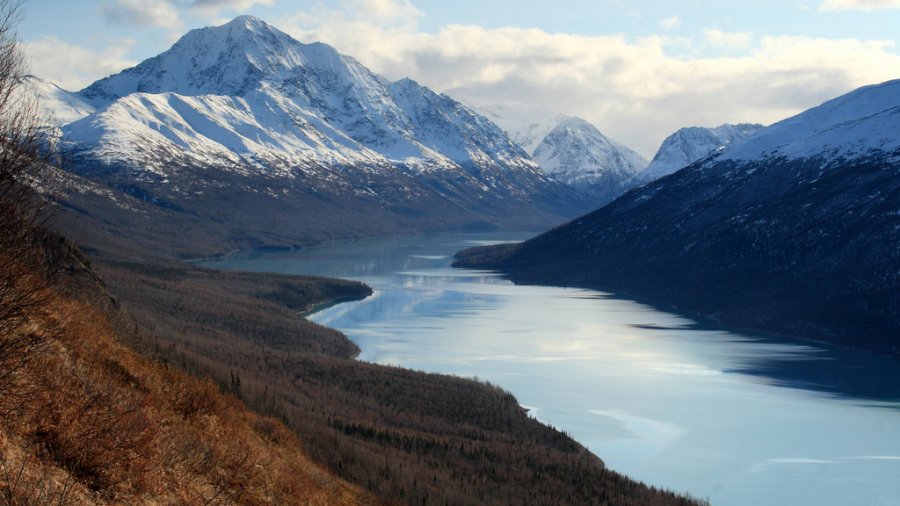
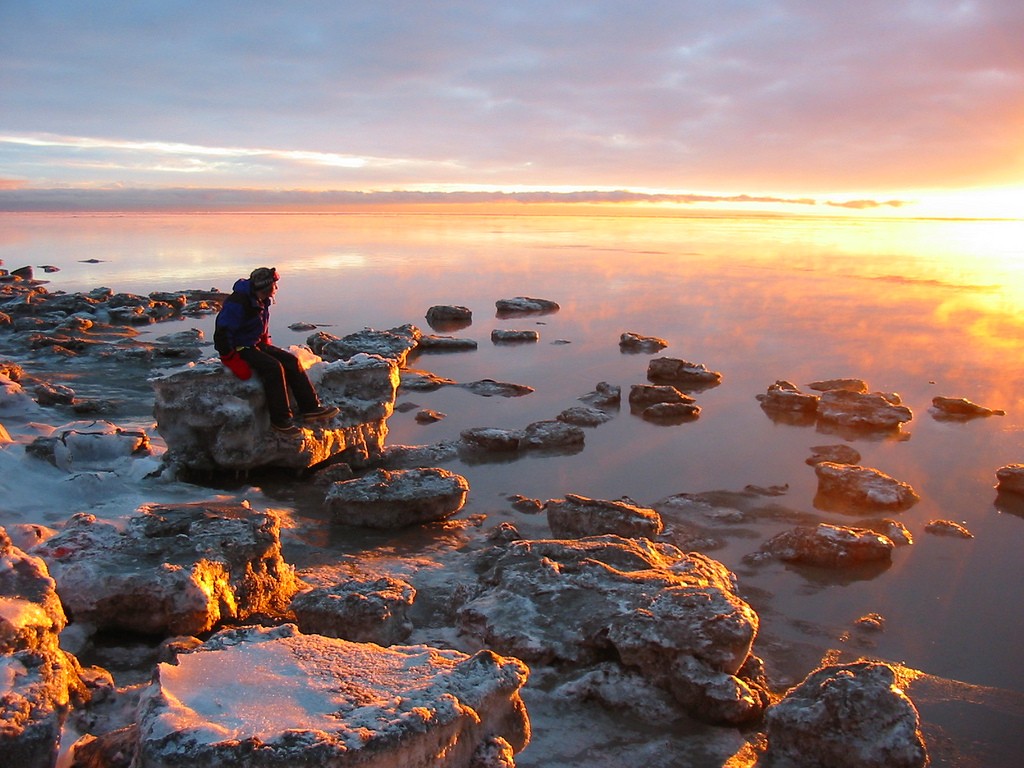
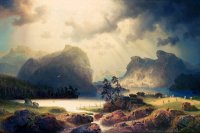

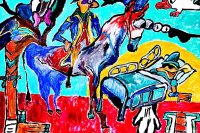
I had the rare pleasure of spending time at Scott’s house when I was in college and he was about 10. This spirit was present even at that young age.
Makes me smile to hear that, Gary. Thanks for commenting.